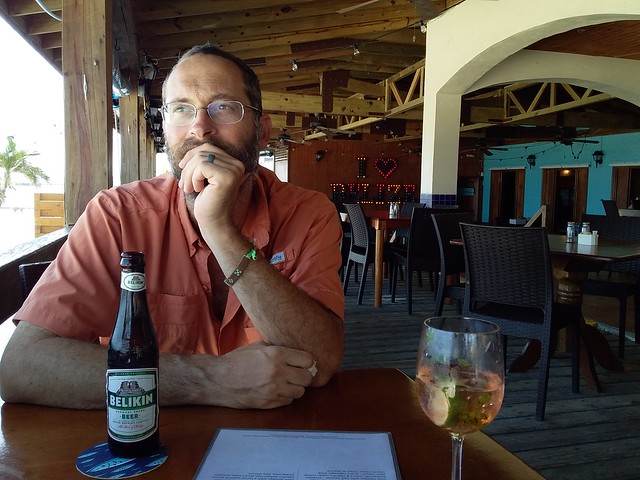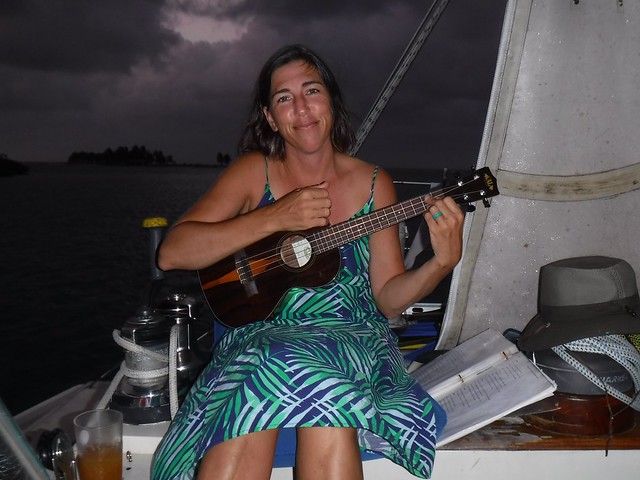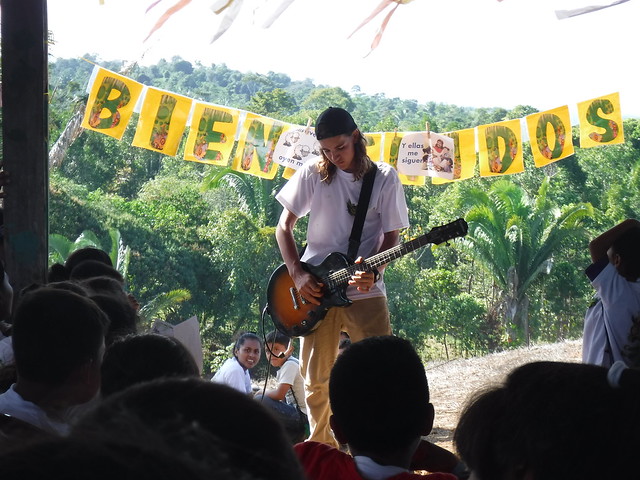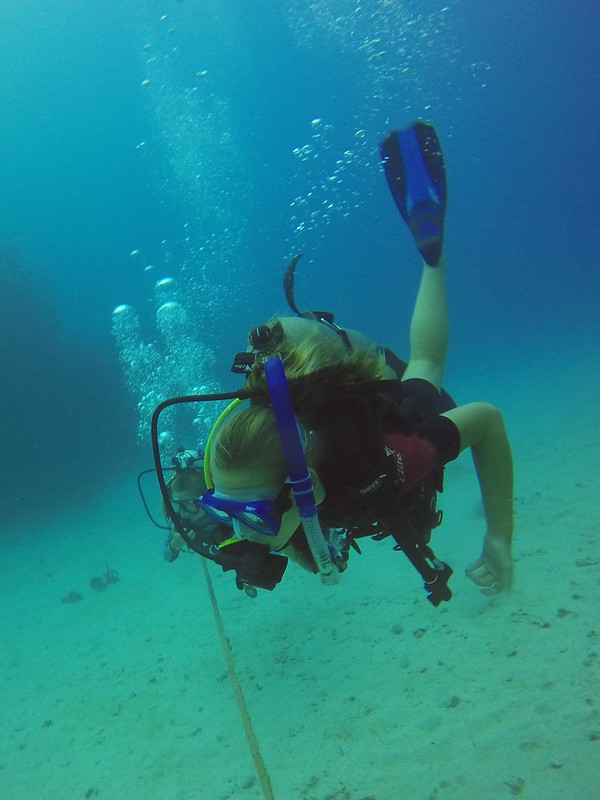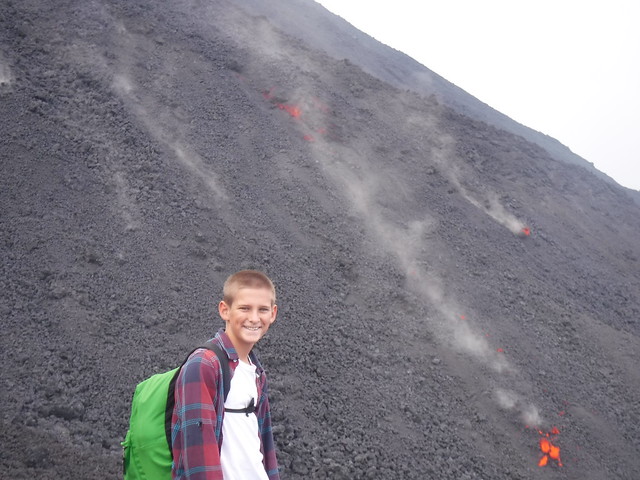“Far too often in seasons of transitions, we tend to do one of two things. Either we forestall the ending because we cannot face the grief of the conclusion of an era, or we leap over the finish line and bound headlong into the next race without pausing to reflect on where we have been on the road to where we are going. Transition– good, heartful transition– requires both. Experiences do not change us. Reflecting on our experiences changes us. For every shift between a then and a now, our task is to reflect on what was and, as a result, what can now be. We must digest our experience in order to [go into the future].”—Chris Bruno
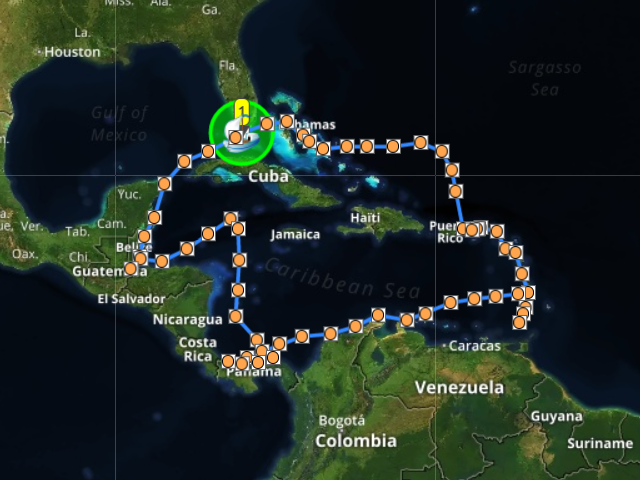
When we bought Take Two in 2008, we talked of taking our kids down to the Caribbean, enjoying beautiful clear water, catching fish, seeing the world in the microcosm of islands, and maybe learning another language. On Tuesday, July 2, we finished that dream trip as we crossed our track and motored toward our mooring in Boot Key Harbor, a place we left over three years ago with our then 14-, 13-, 11-, 9-, and 4-year-old children. We left as coastal cruisers with kids, but we came back seasoned blue-water sailors with young adults. The world seems wider now, but the boat smaller. We came back because it’s time to let the kids begin their own journeys, and our family and support systems are here. We came back to the same place, but we are not the same people.
All of us are “digesting the experience” in different ways. It is wonderful, but weird, to be back in Florida. Some of us were excited to return to “the Land of Plenty” and familiar places and faces. Others of us are happy travelers, reluctant to rejoin the daily routines of land-life. Most of us won’t really understand what the travel has done to us until we gain some life experiences here in the U.S. and get a little perspective. The memories of the last three years, complete with the whole range of joy and misery, friendship and loneliness, excitement and boredom—are still too fresh. Even so, I asked everyone in the family to pause, if for only a moment, before a “new normal” sets in and we’re off exploring in different directions, and to reflect on their experiences as travelers.
Jay: I’m not really a cruiser. I’m just a guy who lives on a boat. I like the self-sufficiency: the boat is our house, it’s our office, it’s our school. We’ve just been doing “regular life” in foreign countries. In that way, coming back to the United States represents conveniences like easy shipping, good grocery stores, and fast internet, but doesn’t really change my day-to-day. There’s not a strong delineation between then and now.
For me the travel was really about the kids. It started as a way to show them the world, have some fun, and learn new things. We wanted our kids to see different cultures and get a broader picture of the world, but also to avoid being indoctrinated in the U.S. with negative things like materialism, promiscuity, entitlement, and instant gratification. While we had a lot of fun in the Eastern Caribbean, the trip really changed when we went west at the end of 2016. We had wanted our kids to learn Spanish, and what better place than Central America?
I think all our goals were met. Some of the results of the travel remain to be seen, but I’m happy with where our kids are right now. I would have liked some of them to step out of their comfort zones more often, but I think they saw enough and picked up enough because we were there so long. My comfort zone definitely grew. Things that would have freaked me out early on didn’t bother me later, and I realized I really like Central America. I can imagine traveling again, being nomadic, maybe spending more time in South America. Having done it once, leaving again would be easier.
Tanya: I’m struggling with this “conclusion of an era” part. This is likely the last big sailing trip we take with all seven of us. I knew it couldn’t last forever, but part of me secretly wanted the kids to stay small so we could just keep traveling around as a family. The other part wants to see the result of this experiment—parenting and homeschooling and traveling—to see what kind of interesting people my children will become as independent adults. Seeing your child transform into an adult is like giving birth in slow motion—it is painful, requires a long labor, and inspires curiosity—and I’m dying to meet the person emerging into the world.
Eli will be 18 this month, Aaron is 16, Sarah, 15, Sam, 12, and Rachel, 8. I am well on my way to becoming the shortest person in the family (even Sam is passing me up and Rachel shows no sign of slowing). There will be a steep learning curve as we rejoin our culture and the requirements of life in the U.S.—learning to drive, taking tests, figuring out educational options, meeting with old friends and new, and finding our places here (both literally and figuratively). I am sure we will continue to travel, as it is more who we are than what we do, but some of our trips will be by land, others by air, and the ones by sea might find us short a few hands.
Despite my sounding a little sad about the conclusion, the bottom line is that I have no regrets: we did what we set out to do. Take Two traveled around the world without having to cross an ocean—her crew met people from all over the globe, heard many languages spoken, experienced the cultures of the Old World while traveling in the New, lived in Central America long enough to understand and passably speak Spanish, made lifelong friends, gave back to the community, came into contact with indigenous peoples and remnants of their ancient civilizations, encountered incredible natural scenery and wildlife, and broadened horizons.
While the results of our book-learning remain to be seen, the benefits of travel and real-life learning are evident: we can sail, tie knots, take a night watch, fish, cook, play musical instruments, solve problems, make art, wash dishes, converse intelligibly with people of all ages, perform in public, hail a taxi or catch a bus, fix broken things, weave baskets, teach a class, get lost and find the way back, express our thoughts in writing, freedive, speak another language, drive on the other side of the road, and make friends cross-culturally. Not all of us can do all of these things, of course, but a wide range of skills and talents are evident, and I believe we have all developed a kind of confidence and comfort in the world that only travel can impart. I am not minimizing the difficulty and discomfort of rejoining the flow of life in our own culture, but as citizens of the world, I think we have a leg up. Furthermore, I have memories to cherish (and write about) for a lifetime, and without a doubt, more adventures to anticipate.
“I’ve seen things you people wouldn’t believe. Attack ships on fire off the shoulder of Orion. I watched C-beams glitter in the dark near the Tannhäuser Gate. All those moments will be lost in time, like tears in rain.” –Roy Batty (Blade Runner)
Eli: Now that we’re back, I’ve had some time to reflect on our grand voyage. So, what exactly did this whole trip mean to me? Well, my home was there, so it wasn’t really a “trip.” We only left people behind. We had all our stuff; we did chores; we did school. The only thing missing was the social environment in which we would have been immersed if we had stayed. But we didn’t stay. We went far away and had all sorts of awesome adventures instead of staying in the same place with the same people. We spent many years and months away from the United States. My “social development” basically stopped when we left our society, and barely advanced in all our time among the islands. I don’t have a phone, I don’t know how to pick up a check, I don’t know how to drive a car, I don’t have a job, I don’t even know very many people here. I’ve been left behind by all my friends, and I feel like I don’t fit in.
But I’m not sorry I missed out. Not at all. I don’t think I ever fit in, and I’ve never been very comfortable around other people. I like to travel. I liked seeing new places, and freediving and hiking and swimming and sailing every day. It was an amazing adventure. It was my life. But now that phase is over, and we’re here in the Keys, and I’m feeling both like I missed out on all my friends’ lives and like I would have regretted staying and missing out on the adventure. But I couldn’t have both. I’m happy with how things went, and I want to reconnect now. I want the relationships, but I also miss the cruising life. Technically speaking, our life now isn’t much different than it was in, say, Isla Mujeres or Guatemala. The real difference is that it’s not new. It’s an old place, with old memories associated very deeply. It feels totally different now than when we visited briefly here last year. It’s the end of an era, and that knowledge changes everything.
Our life didn’t radically change when we left “civilization,” but it did change in small ways. I feel that we became closer as a family, we became more conscious of our wealth in relation to others, and we learned to be more comfortable around the foreign. I came to feel sure and confident in that environment, and everything was good. Now, I don’t know what comes next, now that we no longer swim and hike and climb every day. School is changing, locations are changing. I miss the years spent on the ocean, if only because I know they’re over.
Aaron: When we left the U.S., I was newly 13 and gave zero care to jobs, driving, college, and other related subjects, which was fine. Now that we’re back, I am almost 17 and still don’t care much about any of it, which isn’t so fine. I think I lost my motivation because I live on a boat, spend most of my time at home, and have next to no friends, so all of the aforementioned subjects seem far away and unimportant, while the opposite is true.
Aside from this almost complete lack of concern for untaken developmental steps and vacant area where “social status” ought to be, I think I’m basically the same person as I would have been if we’d never left. I grew my hair out, discovered new music, started working out, and started forming my outlook on life, regardless of location. I can understand the value of living in Central America for a couple of years, but it comes at a cost; it builds insulation from normalcy. I like being on the outside looking in, but I’m thinking that at some point I’m going to have to get in myself, and it won’t be any easier with such a late start. It’s a bit distressing to me to think that I could have been a licensed driver almost a year ago if we’d never left.
The most important things that I did while we were away were working at Agua Dulce Marina, making local friends in Guatemala, volunteering at Casa Agua Azul and the Rio Dulce summer camp, and climbing up the Acatenango Volcano. While similar opportunities in the U.S. might have built skills and self-confidence as effectively as the ones I had, I probably wouldn’t have been interacting with my surroundings in a different language and culture in the way that I was in Latin America. Also, our parents separating us from our peers was successful in sparing us from any teen drama that there might otherwise have been.
In conclusion, the position in which I stand isn’t entirely good or bad. I’m getting a late start in the flow of normal life, but I’m also entering with an outsider’s perspective. And I think Mom and Dad were right when they said, “trust us, when you look back on your life, you won’t regret this part of it.”
Sarah: All good things must come to an end. Not all good things are all good. And while I didn’t have a good time all the time, I think the last 3 years, 5 months, and 8 days we spent as a family traveling around the Caribbean were spent well, and I wouldn’t trade any of those experiences for anything. When we left the United States to begin our trip, I was 11 years old. When I was 11, I would think things like “Someday I’ll get a job” or “Someday I’ll learn to drive a car.” Well, now it’s “someday” and that is scary. I didn’t spend a lot of time preparing for “someday” while we were in the Caribbean, so now that we’re back in the States and about to be immersed in normal life (as normal as it gets for us anyway), I feel like I’m being hit in the face with responsibilities and choices that I’m not quite ready to take on. In a word: overwhelmed.
In a way, I feel like our trip back to the United States last summer helped me prepare for what we’re facing now. Before our visit I had very little idea of what was expected of someone in my age group, or how to accomplish those goals. Now I feel like I have a better idea of what to do and how to do it. It’s also great to be back in a place I can call home, to see familiar faces, and to know where I fit in. Living on a boat has always been, and always will be, a trade-off, and now we’re about to experience something completely different than we’ve been used to; but then, fear of the unknown is normal.
Sam: Each country or island we visited is like an individual person; each has a personality, a culture, and a history. When we went on our three year “trip” we were not on vacation, hanging out on white sand beaches or relaxing somewhere in a resort. When we came to a new island or country, we met it and we made friends with the locals, and learned from it, if we could. So when we came back recently to the United States, I did not necessarily look different on the outside (besides growing taller) but I carry with me on the inside something from the places I went and people I met. I carry not only experiences, like swimming with whale sharks and jumping in waterfalls, but skills, like freediving and palm-weaving, for example, and lessons, like “never interfere with wild animals,” or, “the ocean is unpredictable.” We also came back to the U.S. with a knowledge of the history of the places we have been. I feel that I am a happier person when we are traveling and if I sit too long in one place, I tend to get bored with it.
Rachel: We live full-time on the boat. I can’t really explain what that’s like because it’s normal for me, but I can tell you some of the places we have been. We went to the Bahamas and the Eastern Caribbean. Then we went west to Bonaire, Colombia, Panama, Grand Cayman, Honduras, Guatemala, Belize, Mexico, and back to Florida. I loved our adventures. I am a little sad that the trip is over (except for the times when I was seasick.)


